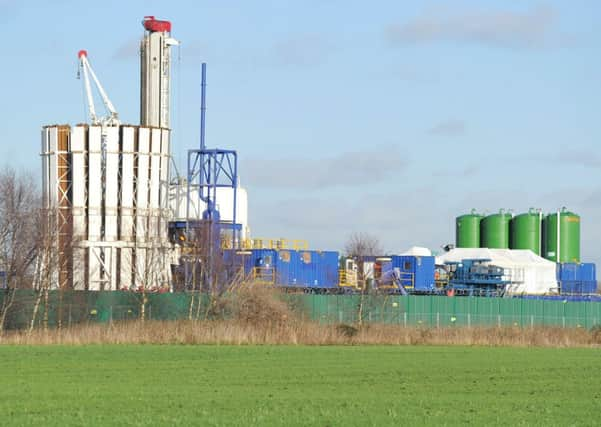UK fracking ‘faces skills and equipment crisis’


A major new survey also suggests that the UK government’s push for the controversial method of energy extraction will increase competition for qualified staff and, as a consequence, put pressure on staffing levels across the oil and gas industry.
The Prime Minister recently told opponents of fracking for shale gas to “get on board” as he unveiled funding to promote the use of the process, despite warnings from green groups and community activists against its expansion.
Advertisement
Hide AdAdvertisement
Hide AdFracking – the method by which shale gas is extracted – has sparked controversy by allegedly polluting water supplies and triggering small earthquakes.
Cameron said last month that shale gas – which has been successfully exploited in other countries, including the United States – had the potential to bring 74,000 jobs, more than £3 billion of investment and give the UK “cheaper energy for the future, and increase our energy security”.
But according to a poll of some 10,000 oil and gas industry personnel, a majority do not believe that there will be sustainable growth of shale gas production in the UK.
The survey, by recruitment specialist Oil and Gas People, found that 62 per cent of respondents reckon the plans will lose steam unless a lot more staff are trained and equipment, such as specialist rigs, invested in.
Some 44 per cent said that the search for shale gas in the UK would mean that companies will have to pay higher wages to recruit qualified fracking staff from overseas.
Kevin Forbes, chief executive of Oil and Gas People, founded in 2009 in Aberdeen, said: “Shale gas represents a significant opportunity for the UK to meet its energy security targets, but the government needs to realise that the nation needs equipment, rigs and qualified staff that are in short supply.
“There is a risk that the push for shale gas could have a consequences for the oil and gas industry as a whole, with an increase in demand for staff pushing up wages and reducing the pool of skilled oil and gas contractors still further.
“However, we still have time to start training the oil and gas recruits of the future now.”
Advertisement
Hide AdAdvertisement
Hide AdForbes, an ex-contractor who has worked in the oil industry on a range of major global projects, added: “The government also needs to realise that, without the workforce, shale gas projects will not be able to go ahead and the energy security will be effected. Government needs to step in and incentivise companies to invest more in people.
“So many people want to get into the industry but there is very little out there in the way of guidance in how to go about that.”
Fracking involves pumping vast quantities of water, sand and chemicals into the ground under extreme pressure to crack shale rock and release the gas.
The Scottish Government last month repeated a pledge that there were no environmental permissions which would allow the process in Scotland “at this time”. A spokeswoman said: “As with proposals for all types of energy projects, any applications for coalbed methane or shale gas projects in Scotland will be studied on their merits.”